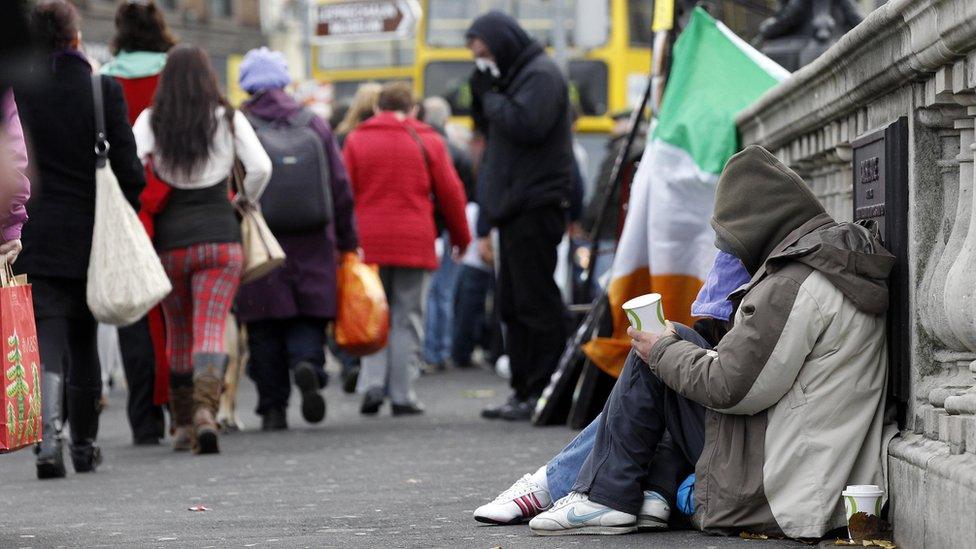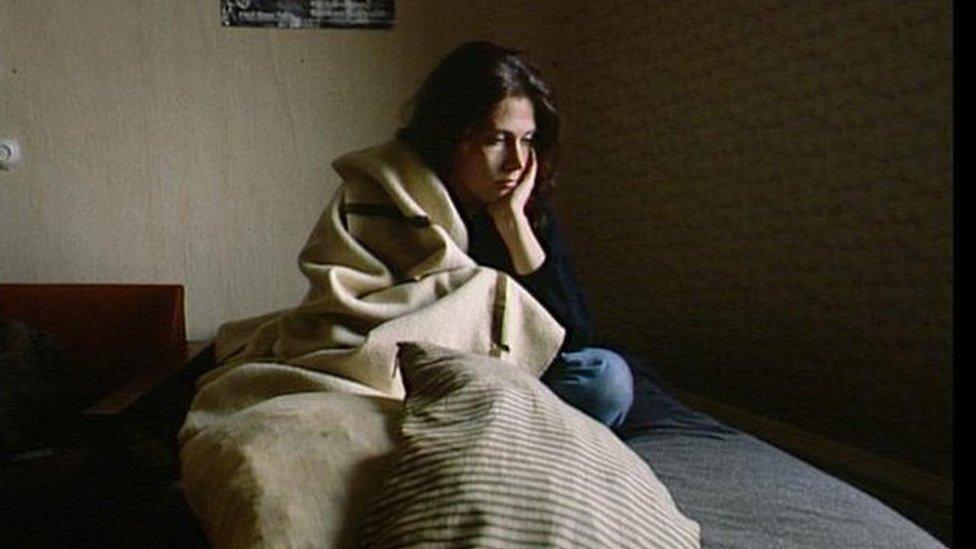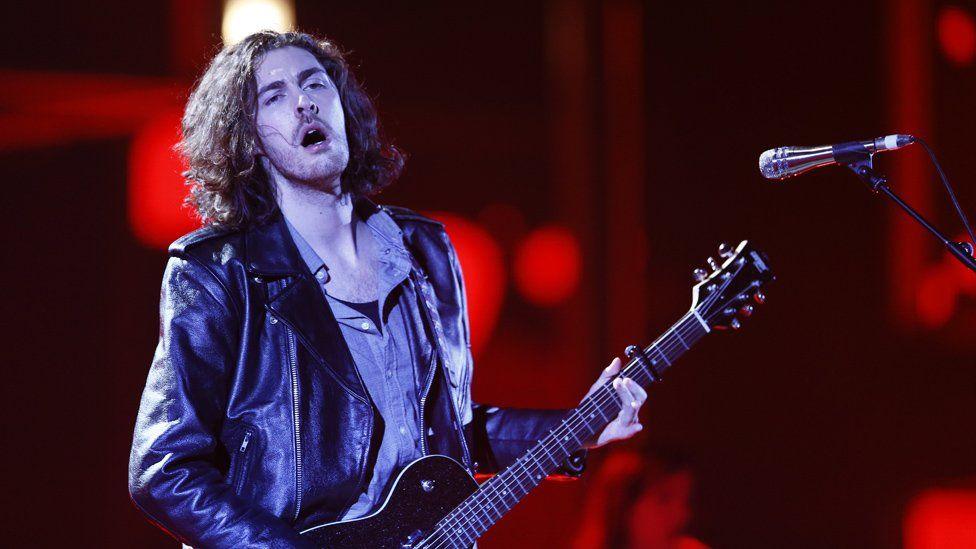Homeless families 'told to sleep in Garda stations'
- Published

Focus Ireland claimed some families did not go to the Gardaí because they were afraid that their children would be taken into care
Several homeless families were advised to stay overnight in Garda (Irish police) stations earlier this week due to a lack of emergency accommodation.
A Dublin Region Homeless Executive spokeswoman said she understood seven families were directed to stations on Tuesday but none took up the offer.
It is not known where they stayed.
Sarah O'Gorman from the executive said what happened on Tuesday night was "unacceptable" but added that it was also an "extremely rare occurrence".
She said that all of the Dublin hotels used by the authorities as a short-term solution for homelessness were full that night.
However, her organisation tweeted that since Tuesday, it had "doubled the number of contingency beds for homeless families".
All of those seeking a place to stay have been accommodated.
'Health and safety'
The Dublin Region Homeless Executive, which is funded by the Irish government, funds a number of homelessness charities who assist in providing accommodation and support.
Ms O'Gorman said the charity, Focus Ireland, advised up to seven families to seek shelter in Garda stations on Tuesday night after they ran out of beds.
She added this was not a policy, but a last resort, because it had become a "matter of health and safety" and they did not want families sleeping rough.
However, a spokesman for the Gardaí confirmed that no families had been housed in stations on Tuesday.
Focus Ireland's Director of Advocacy, Mike Allen, claimed some families did not go to the Gardaí because they were afraid their children would be taken into care.
Speaking to Irish broadcaster RTÉ, he said he believed some of the families had slept outdoors.
Mr Allen added that was very rare for even one family to left without accommodation and this was the highest number he has ever experienced.
'Perfect storm'
Currently, there are more than 800 families who had been designated as homeless who are now staying in hotels in the Dublin area.
Some of the families are staying on a long-term basis and have been living in hotels for more than a year.
Others are given hotel rooms on a night-by-night basis in a system known as "self-accommodating".
Self-accommodating families are asked to phone several hotels each day to find out if any rooms are available.
If and when they find a room, the hotel is paid using a credit card from Dublin City Council, according to Ms O'Gorman.
She said that for long-term lets, the hotel usually send invoices to the council.
Ms O'Gorman said she believed the rise in homelessness in the Irish capital was due to a lack of social housing and rapidly rising rents in the private sector.
She said house-building ground to a halt during the financial crisis, so many families on the waiting list for social housing ended up in private rented accommodation.
However, as the Irish economy emerged from recession, private landlords increased their rents, pushing it beyond the reach of many on low incomes.
Ms O'Gorman said they are the victims of a "perfect storm" in the housing sector, but she said it was a complex problem which would take time to sort out.
'Big reduction'
In a statement, the the Irish Department of Housing said: "At the end of March there were approximately 870 families in hotels.
"The figures for April which are due to be published shortly will show a big reduction in this area.
"We are working to deliver on our commitment to exit homeless families from hotels by mid-2017, other than in exceptional circumstances."
It added that it was working closely with local authorities and non-government organisations to "deliver on this very important target".
Last November, the department confirmed that the number of homeless families in Dublin had passed 1,000 for the first time.
The following month, homelessness activists took over Apollo House - an ex-government building - and turned it into a short-term shelter.
A number of Irish celebrities, including Dublin band Kodaline, singer-songerwriter Hozier and Oscar-winner Glen Hansard, supported the move.
They led the campaigners in song outside the building.
- Published2 November 2016

- Published20 December 2016
